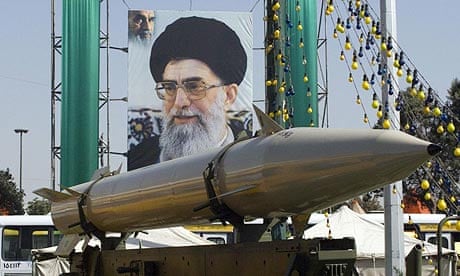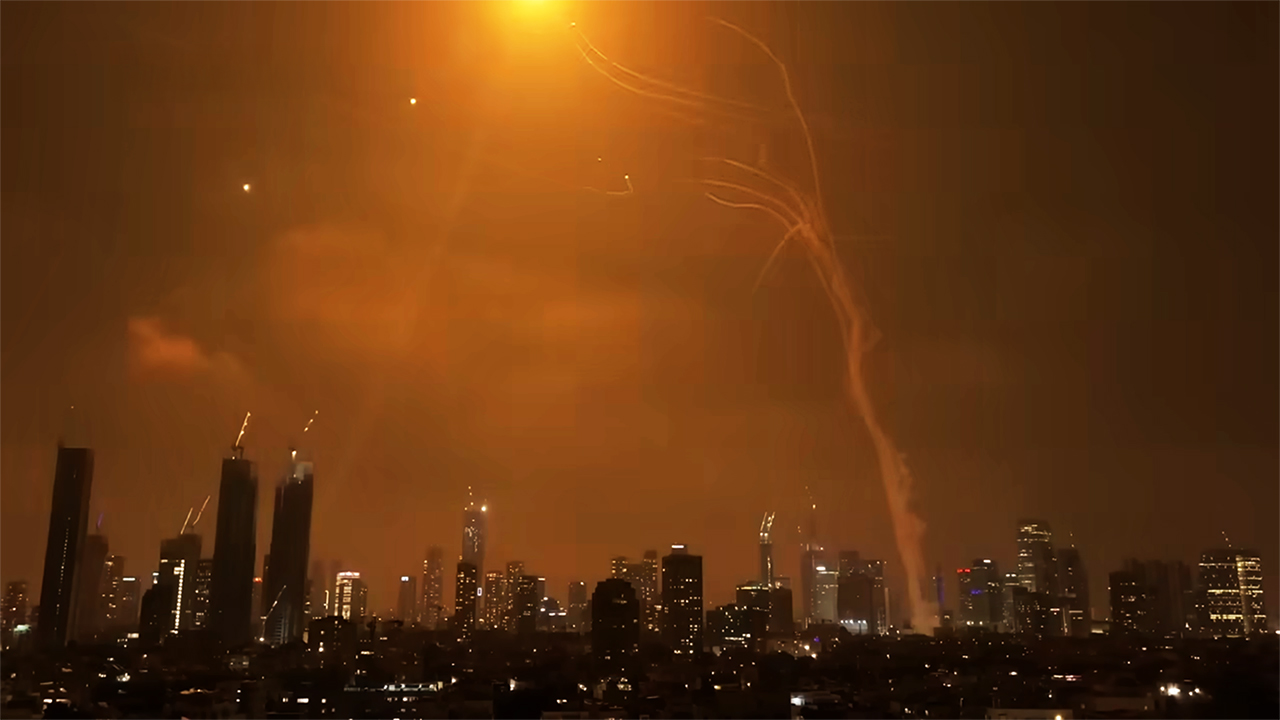
Last few weeks saw the conflict in West Asia deepening further, as Israel launched a massive attack on Iran, prompting the Islamic Republic to hit back. The situation took a serious turn, when the United States too, on Israel’s behest, entered the war and bombarded the key nuclear facilities in Iran. After ’12 days’ of violent attacks, bombings, air strikes, threats and negotiations (back door), the two sides agreed to a ceasefire, while all three parties claiming victories respectively. However, it would be incorrect to not view the situation in the larger aspect, especially the way it has reaffirmed the changing power dynamics in the Middle East and how weak it has left the ‘Muslim World’.
The ’12 Day War’
On June 13, Israel launched massive aerial attacks on Iran, alleging that the Islamic Republic is just a “few days” away from making a nuclear bomb. The Israeli attacks targeted the nuclear facilities, killed major nuclear scientists working on the bomb and eliminated the whole top chain of military leaders in Iran.
Notably, this attack caught Tehran completely off-guard, as US and Iran were already holding discussions for a nuclear deal, with the next meeting scheduled just days later. Though Iran would’ve suspected an Israeli attack in the near future, the timing was the least expected. On expected lines, Iran too fired back with a barrage of aerial strikes, many of which were able to penetrate into the ‘invincible’ considered aerial defence system. Though, Israel had the upper hand in military capabilities and that was visible too, Iran too refused to get bogged down and continued to fight back.
However, the primary concern of the whole conflict, Iran’s nuclear capability, was something Israel couldn’t have dealt with alone. Actually, out of Iran’s three key nuclear sites — Fordow, Natanz, Isfahan, the first one is the most crucial and reportedly, holds around 400 kg of 60% enriched uranium (According to experts, 90% enriched uranium is enough to make a nuclear bomb). But, this uranium at Fordow facility is built deep (around 250 feet) inside a mountain, and no one in the world, let alone Israel, has the capacity to strike that deep. This can be achieved only with the help of B2 bomber which is currently possesed by only one country, the US.
Netanyahu made repeated requests to President Donald Trump to join the war. After many conflicting statements from different people in the Trump administration, Trump eventually ordered the strikes on the 3 key nuclear sites. Hailing the strikes he said it has completely “obliterated” Iran’s nuclear program. Here, one should keep in mind all the past statements from Trump where he strongly voiced against US joining outside wars. Once entering the ring, the US President even threatened to kill Iran Supreme Leader Ayatollah Khamenei. Netanyahu also made the assertion that Khamenei’s killing could “end the conflict”. However, a report claimed that it was Trump who vetoed against Netanyahu’s plan to indeed kill Khamenei, as Israel was keen to hunt down its main adversary and try a regime change at the Islamic Republic.
But, none of this happened as eventually after a lot of back-channel talks, and a few denials, the two sides agreed for a ceasefire. Trump, who was saying days before that they “won’t kill Khamenei at least for now” was now suddenly saying “Long Live Iran” further reiterating his ‘eligibility’ for Noble Peace Prize. However, it’s not as if Iran’s nuclear capability has been crushed completely. Reports and leaked US intel say that Iran had safely moved its 400 kg uranium before the strikes (obviously, if Iran knew US could strike its uranium, it will be foolish not to do so). So yes the US and Israeli strikes did cause significant damage, but hasn’t “obliterated” as Mr Trump and his team are claiming.

The concern of a nuclear situation escalated with US bombarding Iran’s key nuclear facilities (Photo: The Guardian)
Western Hypocrisy over Nuclear Weapons
Now, I have no doubts whatsoever, in calling the Israeli attacks absolutely “illegal” and “violation of international charter”. There was absolutely no imminent threat from Iran. US Director of National Intelligence Tulsi Gabbard said in March, that Iran is “not actively” making a bomb (though she changed her statement now under Trump’s pressure). Regarding Netanyahu, the Israeli PM has been making claims since 1995 that Iran is “days, weeks, hours” away from making a nuclear bomb. Notably, Israel launched this attack just days before his opposition was bringing a bill to oust his government and he doesn’t have majority anymore (two of his allies might reportedly pull out).
The Israeli strikes targeted Iranian civilians with utmost impunity, bombed the whole apartment buildings where scientists were residing and even attempted regime change in a sovereign nation. How come all this, not a violation of the human rights and international order? Had the reactions of Western countries been same if Iran had carried out the attacks making similar arguments?
So, while the West talks about nuclear arms, a logical question is why Israel has been left exempt from any disclosures of its nuclear capabilities? And, if Israel does itself possess nuclear arms (almost every expert agrees), then how can it deny any other sovereign country from doing so. Who is the deciding body here to give certificates regarding who can and who cannot make a nuclear bomb. Because according to West theory, even India shouldn’t have made nuclear weapons, right? And in my opinion, Iran is justified in aiming for a nuclear weapon after what happened under US watch in its neighbourhood in Iraq and Libya, and even in Afghanistan.
And if people’s memories are not so weak, it should be reminded that Iran was part of a comprehensive JCPOA deal with US and others, signed under President Obama. This deal, might not be 100% perfect but helped in keeping Iran’s nuclear enrichment under check. But, Netanyahu who was always against this deal, along with Trump (after he came to power) got US to end the deal unilaterally. And now, the same US and same Trump have the audacity to accuse Iran of not signing a deal.
The Islamic Revolution completely changed Iran both domestically and internationally (Photo: History.com)
Brief Recap of Israel-Iran ties
To understand the relationship between Israel and Iran, you need to be averse with the change in regimes in Iran. So, the real game started in 1951, when Prime Minister Mohammad Mosaddegh came to power with a popular public mandate. The only fault he made, was he wanted to nationalise the oil production in Iran and was close with the Soviet Union, which US thought, could be detrimental to its interests. Following this, US’s CIA along with UK’s MI6, instigated a coup after which Mosaddegh’s government was overthrown and a US-friendly monarchy under Shah Mohammad Reza Pahlavi was installed to power.
Under all these years, Iran and Israel enjoyed very good and friendly ties. However, slowly discontentment started growing within the Iranian public against Shah’s autocratic rule. At the same time, a conservative ideology was also brewing which considered the status quo as alien and US-controlled system. This led to the Islamic Revolution in 1979 which overthrew Shah’s monarchy and led to the establishment of the theocratic state, the Islamic Republic of Iran.
This new regime brought in many curbs on women’s freedom and free press. What it also did was worsening of ties with US and Israel. Ayatollah Ruhollah Khomeini, called both these countries as ‘enemies’, and there started the decades-long power struggle between the two religious countries, which has continued till now.
New Power Dynamics in West Asia
Many experts were saying this for some time, and it has further been reaffirmed that Israel is the biggest superpower in the Middle East region. While Saudi Arabia is a US ally, Turkey plays diplomatically, Iran was the only thaw which even tried to challenge the US-Israel hegemony in the region. But, after Israel’s blistering attacks inside Tehran and coming so close to even eliminating its leadership. This level of air superiority affirms Israel’s position as the superpower of the region.
This follows what all Israel has carried out over the past two years, weakening and killing Iran-backed proxies in the region. First it weakened Hezbollah in Lebanon, through air strikes, pager attacks and killing its chief Hassan Nasrallah, coercing it into a ceasefire. The Hamas, which was already weakened was further crushed by killing its senior leaders Ismail Haniyeh and Yahya Sinwar. The Houthis in Yemen too were weakened to core with Israeli and then the US strikes. The leftover Iran-backed fighters in Syria and Iraq were too small a force in front of Israel. The end of Bashar al-Assad regime in Syria further shifted the scene in Israel’s favour. Netanyahu knows that the only long-term adversary Israel has is Iran, and he was bound to attack the Islamic Republic.

Intense bombarding and air strikes were carried out between Israel and Iran during the ’12-day’ war (Photo: Arab Centre Washington DC)
The Myth of ‘Muslim World’
Now, me using this phrase might sound a bit harsh, but is true. It is pertinent to note that Iran was the only Muslim country, which was still sticking to its initial anti-Israel stand in practical form. From attacking Israel through its proxies to standing for Palestinian cause in actual terms, it was Iran which was harshest against US and Israel, both in words and action. Now, when Israel launched the attacks on Iran, no big Muslim nation; Saudi Arabia, Turkey or even Pakistan came out militarily in Iran’s support. They made some condemnations, but that was it.
Now, contrast this with 1948, when all Arab nations attacked Israel as soon as its existence was ratified by UN; or during the 6-Day War in 1967 and the Yom Kippur War in 1973. This is a huge change which shows how the power dynamics have changed. Now, all the Muslim nations are either US allies, or if not, have been weakened to the extent, that it can’t afford to stand another war. It leaves US and Israel in a position, from where they can literally dictate the future of Middle East.
Yes, Iran has not been finished, the Ayatollah regime has survived, and so has the theocracy and military structure, but the Islamic Republic has been weakened. As it continues to silence opposition voices from within while carrying a struggling economy, it is less likely that Iran will try to attack Israel in the near future. The same, however, can’t be said for the other way round. As Iran’s nuclear plan has survived, it can reemerge as the point of contention anytime. The West-Asia conflict is far from over, but is sure to move ahead shedding off the myth of ‘Muslim World’, or the ‘Islamic Ummah’ many leaders in the region call it.
And while all this transpired, people were easily able to forget that a ‘genocide’ is being carried out in Gaza with utmost impunity. Despite the war with the Iran, the Israeli offensive in Gaza only escalated with even starving and malnourished Palestinians not being spared. Even as the death toll mounted past 60,000 it has caught little outrage at the government level from any major nation. Following this conflict, Israel will be able to carry out is mission with even more power, so the heart-wrenching visuals from Gaza will continue to run over your feed, even if it fails to become a talking point globally. One can even expect a rise in settler violence and expansion of Israeli control in West Bank. Netanyahu will aim to cement his legacy by completely annexing the West Bank and Gaza, and form a ‘Greater Israel’ as they call it.


